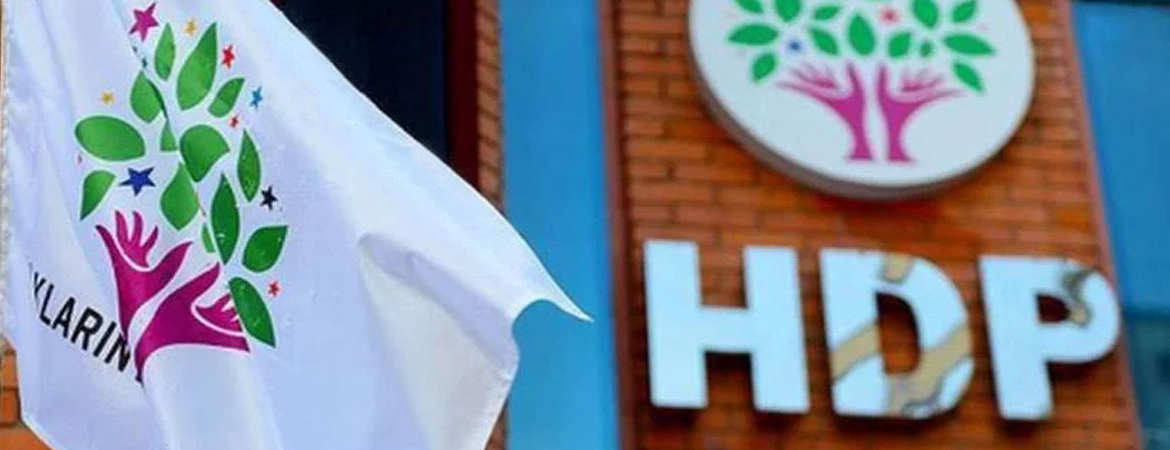
Statement by our Foreign Affairs Spokespersons Hişyar Özsoy and Feleknas Uca:
The AKP-MHP governing alliance has begun to lose support. This is due to fundamental problems such as the economic crisis, the destruction of democratic politics, and utter disregard of justice. As a response to its declining popular support and legitimacy, and just one year before the presidential and parliamentary elections, the AKP-MHP alliance has passed new electoral law amendments in the Turkish parliament, bringing in regulations calculated to keep them in power.
On 31 March 2022, Turkey’s parliament approved electoral law amendments that would manipulate the election in favor of the AKP-MHP. The amendments will come into effect next year.
The new law decreases the threshold that must be passed to enter parliament from ten percent to seven percent. Importantly, it also changes the way that parliamentary seats are allocated among members of an alliance - at the expense of the opposition. Under the current system, parties get more seats if they are part of alliances, but this advantage is being taken away under the changes. Before the changes, seats were first distributed to alliances in proportion to their respective voting rates and then distributed within alliances. Accordingly, if the rate of votes received by the alliance is over the country threshold, the calculation and distribution of the MPs in the electoral districts will be done based on the number of votes received by every single party of the alliance in the related district. Next election, the number of MPs of the political parties constituting an alliance will be determined with the general D'Hondt method by considering the number of votes received within the alliance in each electoral district.
The new law also brings in stricter requirements for parties to complete their district, provincial and nationwide conventions in order to take part in elections. That a parliamentary group was formed before the election law was adopted will not be deemed sufficient for that party to take part in the elections. The new law requires parties to complete organizing in 41 provinces six months ahead of the elections.
The law also stipulates that a draw will be held between the three most senior elections officials to choose the head of the election board. Under the new amendments, challenges to vote counts would thus be overseen by judges selected in a draw instead of by the top-ranking judge in a district.
The new law brings some new arrangements for the procedure of determining election councils. According to the amendment, a political party will not be eligible to nominate a person from another party to be a member of the balloting committee without his or her approval.
With the amendment concerning election bans on “Prime Minister and Ministers,” the phrase “Prime Minister” is removed from the text, and thus, only ministers are subject to election bans. There is no restriction on the president’s activities during election campaigns.
Concerning the nationwide electoral threshold, lowering it to 7% is not a substantial change. It still eliminates the opportunity for representation for many political parties.
Distributing the parliamentary seats by the D'Hondt method has been chosen for the benefit of the AKP-MHP alliance. It takes alliances out of the equation so as to distribute seats directly in proportion to the parties, which would provide an advantage to the AKP-MHP’s Cumhur alliance at the expense of the smaller parties within the Millet Alliance.
Regarding the restrictions on the requirements for a political party to enter an election, it should be underlined that even the previous law on political parties restricted the freedom of association of political parties and interfered with the organizational form and method of the parties. With this new regulation, the government aims to make it more difficult for political parties to participate in the elections.
As for the election of judges in election boards, it has been clear in previous elections that provincial-district election boards have carried out significant irregularities during the election processes. The amendment will make it more likely for judges who were appointed by the ruling party in recent years to oversee appeals cases. Thus, provincial and district election boards will be more dependent on the government.
Concerning the amendments on determining election councils, these create another obstacle for political parties organizing ballot box security. Already, political parties could not register a citizen as a ballot box officer without her/his knowledge and consent. With this new amendment, the government not only tries to prevent parties with relatively weak organizations from participating in the elections, it also wants to prevent the parties that do have the right to participate from organizing ballot box security.
As to the amendments on election bans on “Prime Ministers and Ministers”, as we have previously mentioned, there will be no restriction on the president’s activities during election campaigns. Thus, the president will be able to use all state opportunities from the start of the election campaign to the day following the election. However, ministers, deputies, and heads of other political parties will be subjected to bans. This is an obstacle to a fair election and a violation of constitutional and universal law.
It is obvious that the AKP-MHP alliance changes the election law according to its own needs. These changes will not bring a democratic and fair election. Rather, they will block the representation of various social dynamics in parliament and further undermine the will of voters as reflected in the ballot boxes.
Feleknas Uca & Hişyar Özsoy
Co-spokespersons of HDP Foreign Affairs Commission
4 April 2022
